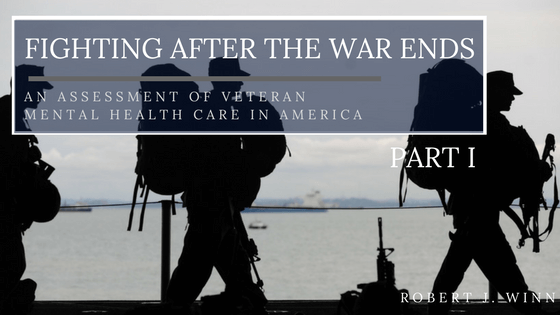We’re always so well-meaning when we say it. “Cheer up;” “Shake it off;” or, my personal favorite, “Man up!” Despite an increasing awareness of the importance of treating mental illness as, well, illness, I often encounter patients and family members who downplay the validity of mental health concerns and scoff at the very idea of treatment. We bury the problem into invisibility – pushing it so far out of sight and mind that we leave ourselves utterly unprepared for when it re-emerges as a critical concern. As a primary care physician, I’ve seen this trend impact those across age brackets and professions; however, I particularly worry for the veterans who enter my office.
I was a military kid. My father – retired now – served in the Air Force his entire career. As a result, I spent my early years moving from base to base, immersed in military culture. Even as a young guy, the conservative values inherent in the life didn’t appeal to me; much to my father’s chagrin, I opted out of service and chose not to utilize any military scholarships in my education. However, my early life still left me with a certain thoughtfulness towards those in the military. In my medical career, I’ve treated veterans from all wartime eras, from World War II to today’s conflicts in Afghanistan, and found that real physical and mental wounds remain even after years. In some cases, the pain is pressing – and yet, many still dismiss it as unimportant or “weak.”
The issue is concerning, not just for those who currently suffer under the burden of wartime wounds, but for those to come in the future. The statistics reflecting the pointedness of the issue are significant; according to a survey published in 2011, a full 36.9% of veterans who fought in Afghanistan and Iraq were diagnosed with a mental illness upon their return. 21.8% of that surveyed population suffered from PTSD, while 17.4% were found to struggle with depression. These are significant numbers with serious implications; while the two conditions aren’t exclusive to veterans, those who face combat have a far greater chance of developing one or both illnesses due to the stress. Moreover, the knee-jerk “tough guy” response of backslapping psychological concerns away isn’t just unhelpful – it’s downright damaging.


